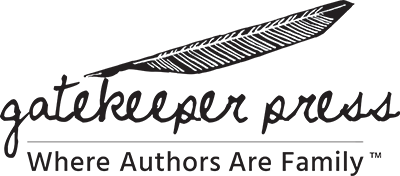If you are rounding the bend and approaching the end of your book project, you are likely considering the next steps to getting your manuscript published. If you have decided to take the traditional publication route, you will need to first learn the answer to this question: What is querying?
What is Querying?
Querying is the process by which an author pitches his or her book to a particular literary agent or publishing house… or to several of them in a one-page letter. A query letter is the vehicle used to professionally package your book idea into a tidy four-paragraph elevator pitch.
The purpose of the query letter is to present your manuscript in a succinct way, allowing an agent or publisher to quickly surmise whether or not they are interested in your project. Read on to learn how to write a query letter that checks all the boxes, prompting an agent to happily represent you.
How To Write a Query Letter
The good news is that query letters are written according to a publishing industry format, so you don’t have to reinvent the wheel. The bad news is that an author has about ten seconds to convince the reader that the rest of the letter is worthy of their time. In other words, an author need only follow the query letter template, but what you write had better be great.
Here are the nuts and bolts of how to write a successful query letter:
Salutation
Since you are corresponding with a human being, you’ll want to open the letter with a salutation, greeting them by name as you would any other letter. No matter how many of these query letters you email out, always personalize the letter to the particular agent.
The Hook
The first two or three sentences of the query letter will either motivate the reader to read on or convince them to smash the trash can icon. Truly, these few sentences are the most critical if you hope to gain representation, so rewrite and refine them until they are spectacular.
Your hook should be so intriguing, inspiring, or just plain captivating that it elicits a strong desire in the agent to read your entire polished manuscript. The more query letter examples you read prior to writing your own, the better you will understand how to word this crucial first paragraph, and to nail it.
Describe Your Story
Where the first paragraph offers a tantalizing appetizer, the next paragraph or two (or 200 words max!) provide an opportunity to present the compelling highlights of your book. If your book is in the fiction genre, introduce the primary conflict or story arc, and maybe additional details about the main character.
If your book is within the nonfiction genre, this space allows you to explain the problem, in whichever field, that the book solves for the reader. If a biography or memoir, this is where you can summarize the scope and contents of this literary work.
Author Bio
The author bio offers a chance to impress the agent with your credentials, writing experience, former works, unique backstory, or expertise in a particular field. Keep it tight, write it in the first-person point-of-view, and remember that your goal is to project credibility as an author.
Closing
Your query letter closes with a short paragraph that refers to the manuscript, chapter samples, or book proposal that follows in the body of the email. Be sure to carefully follow the submission guidelines for each individual agent or publishing house, as they are all unique.
If your book is a work of fiction, provide the total word count for your completed manuscript. Express appreciation for the agent’s time and consideration, and finally, provide your contact information below the signature line.
Tips for Writing a Query Letter
Now that you have a general understanding of how to write a query letter, it is helpful to know how to finesse it further. To create a query letter that compels the reader to continue on to your writing sample or manuscript, consider these tips:
Personalize It
Nothing sends a query to the slush pile faster than a boilerplate form letter. Take a minute to look up the agent’s name and title for a personal greeting, and then pepper in some tidbits, in the final paragraph, that show you have done your research into their agency. This may include the mention of a similar work they published or a reference to a literary award they have received.
Keep it Concise
Agents and publishing houses are overwhelmed with queries. If you want yours to be read, keep it to the length of one typed page, single-spaced, or about 400 words. Brevity is king when it comes to writing an effective query letter.
Lead With Your Strongest Selling Point
Nothing gets your foot in the door like a personal referral. If you have a mutual acquaintance or have been referred to the agent by someone notable in the publishing realm, be sure to start your query with that little nugget.
Balance Character and Plot in Your Description
To give the agent or publishing representative a well-rounded view of your story, strive to balance the character description and the plot basics in your book description. By giving equal time to each, you can craft a meaningful synopsis.
Proofread Your Query Letter
Skip the proofreading step at your peril! Remember, you are writing to pitch your amazing manuscript to a literary agent. The last thing you want is for that pitch to be riddled with typos or grammatical errors. Double check the letter and read it aloud to catch any errors. Take the time to perfect your query letter before hitting the send button.
Query Letter Examples
The very best use of time before writing a query letter is to review a ton of query letter examples. Find a few that speak to you and use them to inspire your own unique query. Here are some query letter template examples:
Query Letter Example 1: Fiction Book
This query was penned by author Tracy Anne Warren for her romance novel, The Husband Trap:

Query Letter Example 2: Nonfiction Book
This query was written by author Shane Ellison for his book, Over-the-Counter Natural Cures:

Facing Rejected Query Letters? Consider Self-Publishing
If you have received nothing but rejection letters in response to your queries, try not to take it too personally. Most authors have this exact experience. However, if you believe your work would do better as a self-published work, partner with Gatekeeper Press. We offer a full menu of services including editing and book design, as well as publishing and distribution. Call Gatekeeper Press today to make your author dreams come true!


